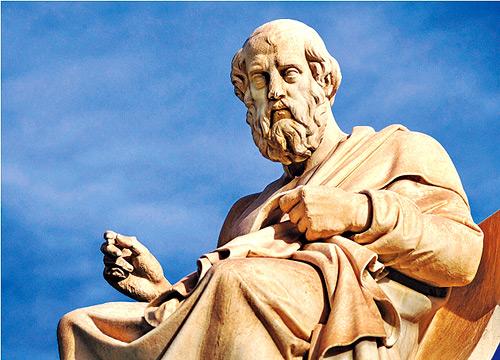
Ancient Greece was a civilization belonging to a period of Greek history from the Greek Dark Ages of the 12th–9th centuries BC to the end of antiquity (AD 600). Immediately following this period was the beginning of the Early Middle Ages.
Greek philosophers lived in hundreds of different villages, towns and cities, from Spain to Libya and the Nile Delta and to the north-eastern corner of the Black Sea. These thinkers contributed hugely to our understanding of ethics, politics, mathematics, and the natural sciences. There has always been a great deal to learn from the world of the ancient Greeks, e.g. Stoicism which is highly respected as a practical philosophy.
My first experience was as an undergraduate in a foreign university. Although not compulsory, we were encouraged to study Greek Philosophy.
It wasn’t until later, as a busy and stressed senior executive that I realized how Stoicism could apply to the crisis-ridden modern world and to our personal lives. Stoicism is a practical philosophy for good, contented and peaceful living.
What is Stoicism?
Stoicism was founded in Athens by Greek philosopher, Zeno of Citium, in the early 3rd century BC, and practised by those such as, Epictetus, Seneca and Marcus Aurelius. The philosophy asserts that virtue (quality of doing what is right and avoiding what is wrong) is genuine happiness and judgment should be based on behaviour, rather than words.
Stoicism took off because it offered security and peace at a time of warfare and crisis. The Stoic creed didn’t promise material security or peace in the afterlife; but it did promise an unshakable happiness in this life.
Stoicism reminds us how unpredictable the world can be. How brief our moment of life is! Finally, the source of dissatisfaction lies in the impulsive dependency on our reflexive senses rather than logic. Stoicism helps us overcome destructive emotions and act on what is morally right. It is built for clean and honest action, not endless debate.
Stoicism tells us that no happiness can be secure if it’s rooted in changeable, destructible things. Our bank accounts can grow or shrink, our careers can prosper or falter, even our loved ones can be taken from us. But nobody can touch our inner selves, our choice at every moment to be morally strong, to be reasonable, to do good.
A teaching like that seems designed for a world on edge, whether it’s the chaotic world of ancient Greece, or a modern financial crisis. But then, Epictetus would say that--as long as we try to place our happiness in perishable things - our world would be on edge.
Let us see how Stoicism can help develop morality in our lives.
1. Choose valuable work, not busy work
Marcus Aurelius, the great Stoic philosopher, in his document “Meditations” said, “It is essential for you to remember that the attention you give to any action should be in due proportion to its worth…”
In other words, we should assign higher priority to more valuable activities. For an author, it means sitting down with a blank page and continuing writing. For a chef, it’s experimenting on new dishes. Both should reflect on how to improve their important work rather than allowing to be victims of the day-to-day rituals.
Aurelius also said, “If you seek tranquillity, do less. Do what’s essential. Do less but do better.” Ask yourself whether a task you intend to do is really necessary. If not, eliminate it.
2. Decide what’s in your control, and don’t worry about the rest
Epictetus, a prominent Stoic philosopher, advised, “Identify and separate your responsibilities so that you can say clearly which are externals, not under my control, and which I have to do with the choice I control.”
This duality can help us to focus on what we can control and not waste time on external forces. Each day, numerous issues are out of our hands, like the weather, faulty technology, etc. It’s better to acknowledge our powerlessness and move forward rather than waste time worrying about them.
3. Live by your actions, not your thoughts or words
Words are procrastination’s best friend. Often, we make a list of reasons to avoid a task, and give ourselves the emotional comfort to procrastinate. But for Stoics, actions are everything, not words of excuse. If you really want to overcome procrastination, stoicism is your best guru.
Stoic philosopher Lucius Seneca, described a method he used to measure himself objectively at the end of each day. He’d ask himself: Today am I better than yesterday? What did I do with my time today? What were my outcomes?
Keeping that daily self-assessment in mind would help you to work productively, even when you are low on motivation.
4. Today could be your last day in life
A simple but powerful Stoic practice is being ever-conscious of your mortality. It may sound morbid, but it isn’t. Actually, it is a rallying cry, a commitment to squeezing the most from every drop of life.
Seneca captured this idea when he wrote: “We are not given a short life but we make it short, and we are not ill-supplied but wasteful of it.” We’re all guilty of this predicament. Our fast lifestyle is one cause and there are many others. But we have to reel ourselves back in, and be mindful of the value of our time.
Live in the present. But never forget - today could be your last day. So, make the best of it.
In short, Stoicism is a tool-set that helps us live in today’s unpredictable world. We may not be able to control the external events, but we can control our minds to adjust our behaviour to face them and continue with our work. The Stoic legacy can shape us and our modern world in more ways than you expect.
